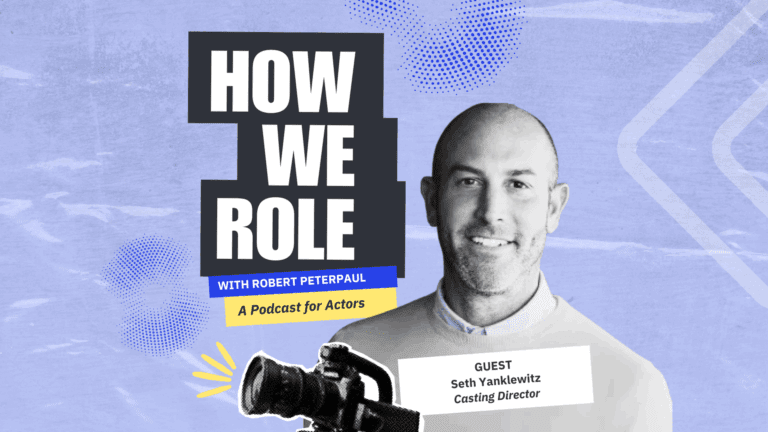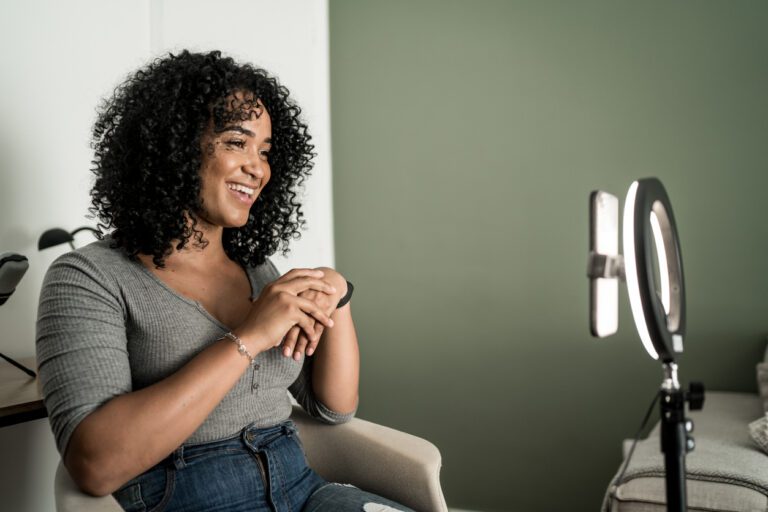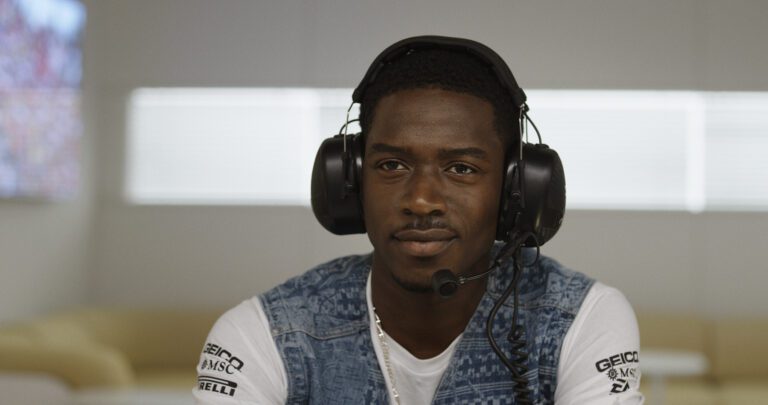We bring you an exclusive interview with casting director Chase Paris, a name synonymous with Cobra Kai, Sound of Hope: The Story of Possum Trot, Agatha All Along, Guardians of the Galaxy Vol. 3 and Fly Me to the Moon.
Casting directors are the often-overlooked masterminds who assemble the ideal ensemble of performers, influencing the dynamics and vibrancy of what we experience in films and television.
Chase Paris has emerged as a groundbreaking casting director. His exceptional skill in pairing the ideal actor with the appropriate role has positioned him as a preferred choice for projects that require genuine emotion, complexity and adaptability.
In his career, Paris stands out due to his genuine enthusiasm for discovering emerging talent. He approaches each audition with an open mind, eager to delve into the diverse perspectives that actors bring to their roles.
Whether you’re an aspiring actor, a film enthusiast or simply curious about the inner workings of show business, this interview offers a rare and enlightening glimpse into the mind of one of casting’s most influential figures.
You’re the co-founder of Feldstein | Paris Casting, alongside Tara Feldstein Bennett, CSA. What’s your approach when you and Tara disagree on who is best for the role?
This hasn’t happened in such a long time if I’m honest — if she thinks someone is right and I disagree, it’s as likely I’m wrong as I am right. Casting is a subjective art, no two people will agree on everything, so unless there’s a very big, crucial reason not to present someone for a role then I trust her vision and she trusts mine. That’s not to say we don’t talk it out or give opinions, but it’s rare either of us will stop the other from presenting someone they like.
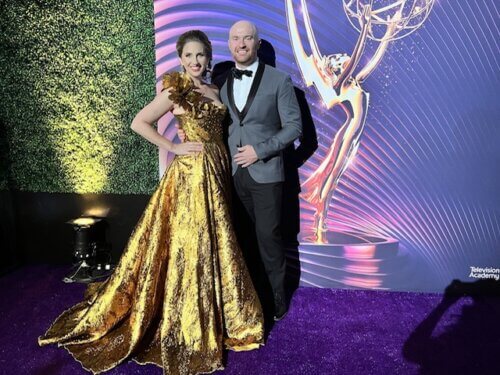 Photo courtesy of Chase Paris.
Photo courtesy of Chase Paris.How do you maintain a fresh perspective when casting for long-running shows or projects with established fan bases?
See lots of people. Not just in volume necessarily, but try and keep our eyes out for new talent that are getting started or aren’t as familiar with.
For longer-running shows, it gets easier! We are more in tune with the vision of the show and what our creatives respond to/look for in the roles they are writing, as well as what the fan bases expect. It’s important to keep each show’s identity in mind as well – someone who is right for, let’s say Stranger Things, may not necessarily be right for a glossier network show like Dynasty. Both shows had long runs and plenty of roles to cast, but if we approached them the same I don’t think either show would be as strong, so we stay cognizant of that.
You’re based out of Atlanta, GA. Over the years, Georgia has seen a significant increase in television and film productions. What sets Georgia apart, making it a preferred location for filming over traditional hubs like California or New York?
Compared to those two specifically, and anywhere else in the U.S., our tax incentive is hard to beat. It’s important to recognize that as the major driver in bringing work to our state over the past 17 years. That said, the amount of production that incentive brought has developed a very diverse and deep talent pool, both in on-camera talent as well as crew.
It took many years, maybe as much as a decade, for productions to come here and truly trust the talent they could use to make their movies, but now I’d put our talent up with just about anyone, especially for the types of roles we’re casting. You also have the major hub of Atlanta, along with the busiest airport in the world, first-class accommodations, a culture that embraced a new industry and just about any location you could want.
Atlanta is really hard to beat, but keep in mind we have a state-wide tax incentive, projects shoot all over, and there’s support for it from state, city and county governments. It’s easy to see why people want to shoot here: Georgia is all-in on the entertainment industry, and that only continues to strengthen.
For Cobra Kai, there are a lot of actors in their teens and early 20s. Do you have to be in a different mindset when casting younger talent to ensure you’re finding the right balance of authenticity and skill?
We came into the show after the first season, so the majority of the roles we cast were older than the teens, but I will say the ones we did cast — and we get a lot of calls to cast kid and teen-heavy projects — you have to look at the kids you’re sending to make sure they’re capable of what that specific role needs.
Sometimes we have to see a lot of kids — they aren’t generally well-trained, experienced adults with years in the industry — they’re mostly kids that like acting, have good energy and personalities and want to get into it like they would any activity or sport. We have to go through those submissions a little harder to make sure they can handle what is needed.
We want kids to be kids and not get sucked into this industry just to be spit out, and we also counsel parents to let them be kids and not overly professional all the time, but we also stress that when they are hired through us and are on set, for that day they are adults and it is a job, and their parents need to help them manage it on that day. Every day before and every day after we want them to be kids, but for that day they have expectations and people relying on them, and they need to be prepared for that. We do what we can in that regard and I’d say the vast majority are great due to that extra bit of due diligence.
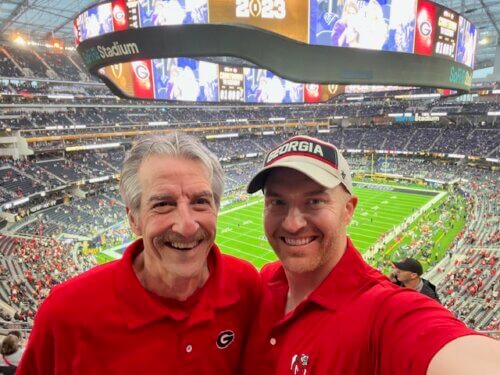 Photo courtesy of Chase Paris.
Photo courtesy of Chase Paris.Fly Me to the Moon has an all-star cast, including Scarlett Johansson and Channing Tatum. What’s the difference between casting high-profile actors vs. lesser-known or emerging talent, and how do you balance the needs of the production with the desire to bring fresh faces into the spotlight?
The easy thing here for us is we’re generally not tasked with casting high-profile actors. Our job is to populate the supporting and below roles. The key here is to find the right balance between experienced actors and new faces in a scene.
Experienced actors are great but not always available or right or interested in a role. New faces are untested and too many of them on set could be an issue, and they could be intimidated on set with a high-profile actor, but they could bring a new flavor or dynamic to a scene. This is why I think it’s important not to populate projects with so many “known” actors.
We have to bring the next generation forward. We need to support the working actor further down the call sheet. We have to be more creative in our casting instead of just cherry-picking the recognizable face. I think doing these things makes production better and more fun in the end, so I’m glad it’s the field we stay in.
Some casting directors enjoy reviewing reels, while others prefer to avoid them. What’s your perspective on using reels in the casting process?
If I’m unfamiliar with an actor I like to review a reel to see what they’re all about, but if I know you well I generally don’t need to see your reel. You’ve shown me what you can do through a history we’ve built together. A reel is an amazing tool to include in pitches and self tapes so if you have the previous work you should definitely have one, but if you don’t, like a good majority of the people we see, you’re also just fine, and not at a disadvantage.
You’ve been in the business since 2007. Back in the day, there was a different vibe for actors on the West Coast vs. East Coast. West Coast stigma is more of a plastic-type whereas East Coast is more of a conventional, real-feel.
Correct, though I think that’s generally considering just L.A. and N.Y. In the south, and I’ve noticed in almost every “regional” market, you get the more charactery, natural feel. Similar to NY but with a vibe that’s a bit more “raw” I’d say. I’ve noticed over time they get much more experienced but that “raw” vibe is still in their repertoire, which is something we love. It’s one of the aspects of the casts we’ve put together that our clients respond to.
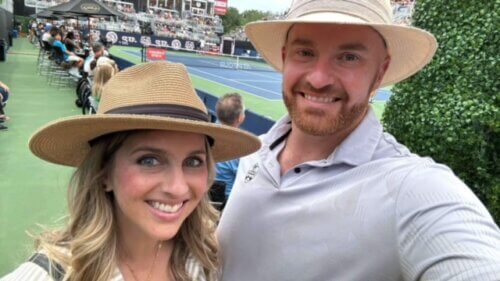 Photo courtesy of Chase Paris.
Photo courtesy of Chase Paris.Casting for Stranger Things must be exhausting. What’s your process when receiving thousands of submissions?
It’s just about steady progress. You can’t get through all of them quickly, that’s impossible, but also you can’t let them pile up.
We see more actors for that project than any other, maybe any TWO others combined. It’s both because the show is so well regarded and sought after (so we got a ton of submissions) and the choices end up being very specific (so we need to read a bunch to find them). Exhausting isn’t the word I’d use, it’s still very gratifying, but it’s certainly not quick or easy!
What are some common misconceptions about the casting process that you think actors and aspiring casting directors should be aware of?
We are part of the creative process and a key component of the decision, but we are by no means the last word. Yes, that has happened at times, but generally, it’s a communal decision between us, our L.A./N.Y. counterparts, the director, producers and the studio/network. All must align before a decision is made, and one dissenting opinion along the way and we’re usually back to square one.
We’re also huge advocates for actors, every CD I know is, but it all happens out of sight and behind the scenes, so some think just the opposite. The truth is we don’t call people in to waste their time (it would be a waste of ours as well). Everyone we call in we want to do well and would love to cast.
The hardest but best days are when we have several options that are right for a role and we have to navigate who the final decision is. There is only one role, after all. However, don’t let the fact that we ultimately are the ones that tell you “yes” or “no” overshadow the fact that we’d love to tell everyone we called in “yes” — that’s why we called you in the first place!
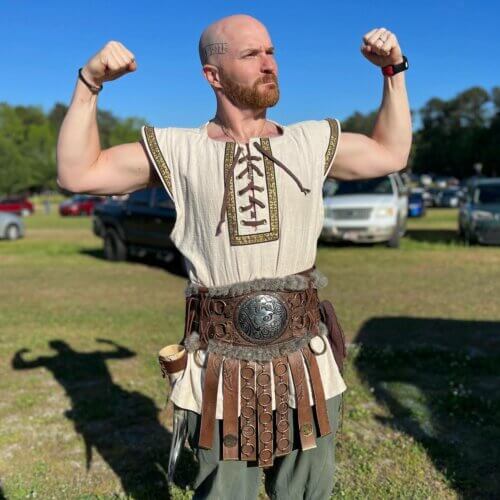 Photo courtesy of Chase Paris.
Photo courtesy of Chase Paris.What advice would you give to up-and-coming actors looking to make an impression in a highly competitive industry?
We don’t live in a meritocracy, so you have to be your own best advocate. Don’t simply wait for someone to notice you, go out of your way to be noticed and get on their radar. This should be a full-time job — not acting on set, but being an actor and living that life. You should be in class, networking, honing your craft in any way possible, working on getting a talent rep and nurturing that relationship. Be proactive.
I see too many actors do just some of these things, both starting and established. Working hard on their craft and grinding in workshops, community theatre, student films, etc., but not doing the business side of things like networking, finding a rep, understanding union contracts, etc. The opposite is true as well — some only work on the business and think they’ll get by on set on their natural talent, so never take classes or act outside of being on-set. You should do all of these things and don’t take any of them for granted.
Acting may come easy to you but the business side isn’t your favorite. So what?! You still need to do that part to succeed! Maybe you have a few credits and get the business so think you don’t need to continue to do short films or take classes. Wrong! Talent is like any skill, it only gets better with more practice, and can certainly diminish without putting work in.
Approach this industry both as a passion as well as a career. Unless you’re hoping to get lucky and make it big by doing only half that, you’re likely to be disappointed.
Visit Chase Paris’ Socials:
Thinking about joining Casting Networks? Sign up for a free trial today!
You may also like:

